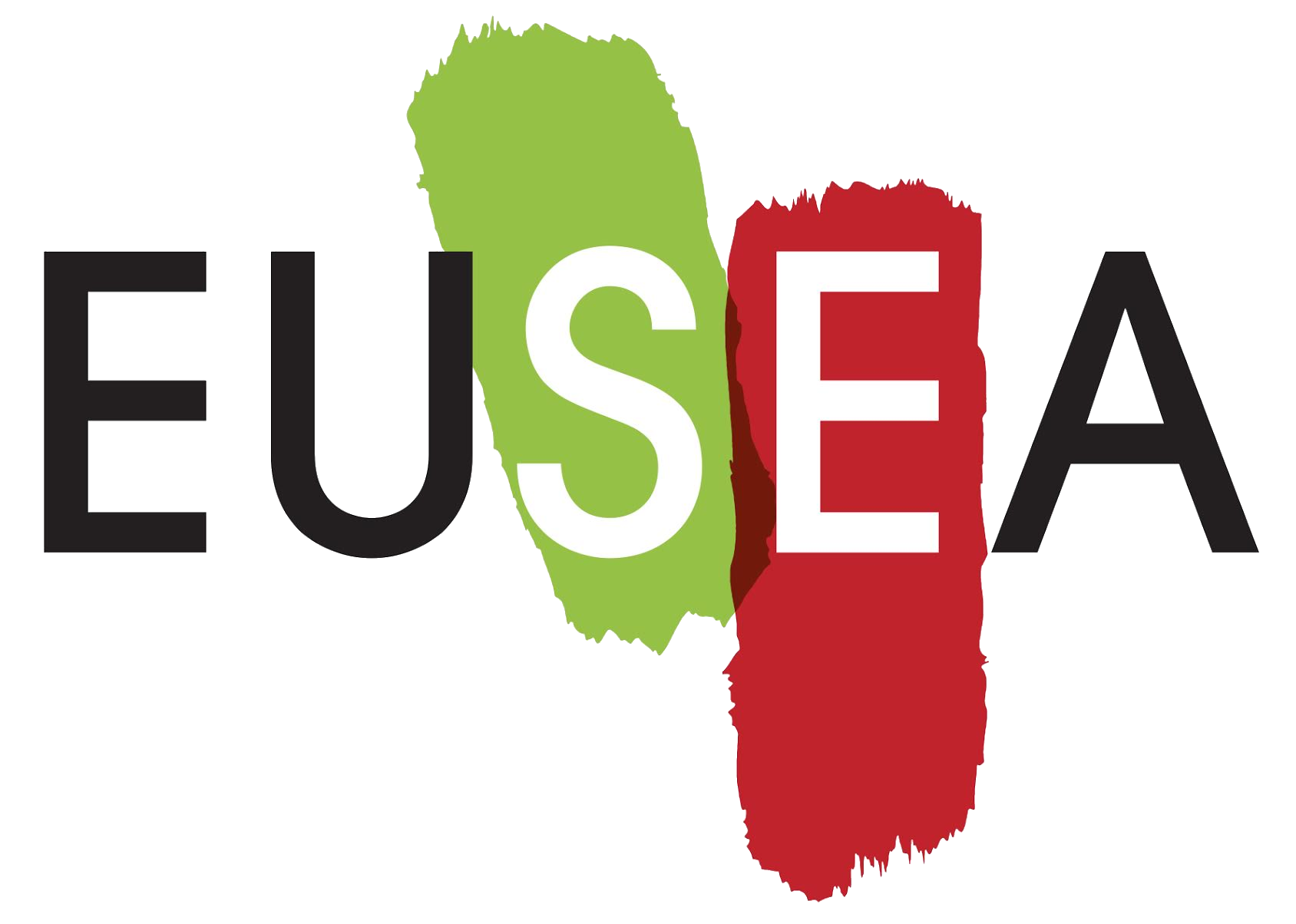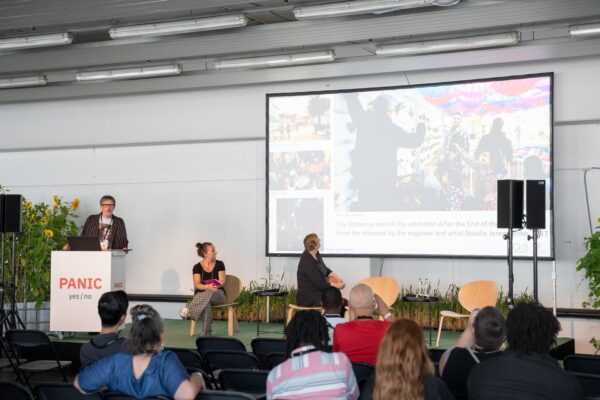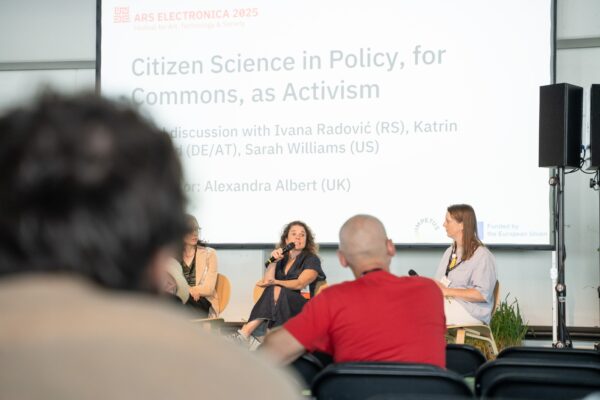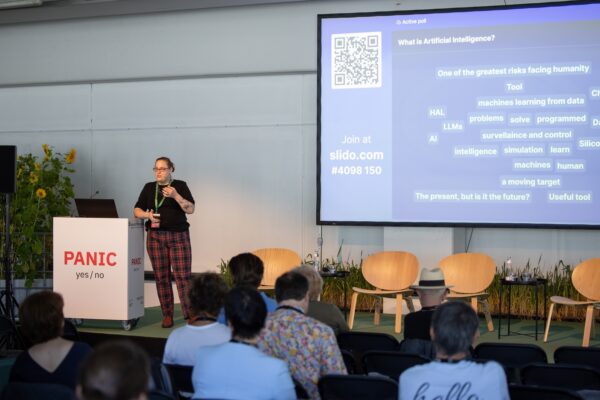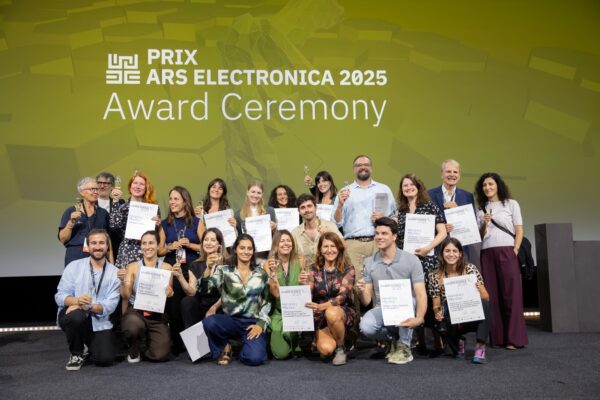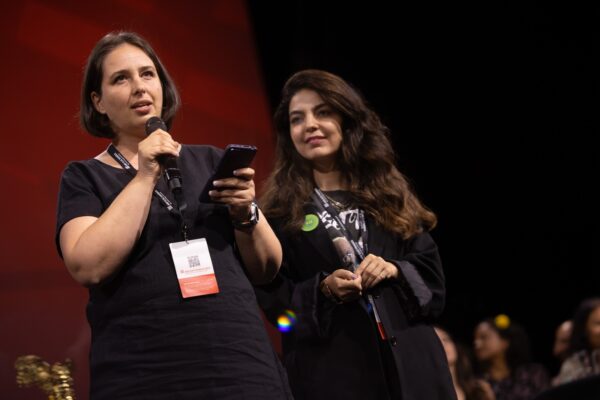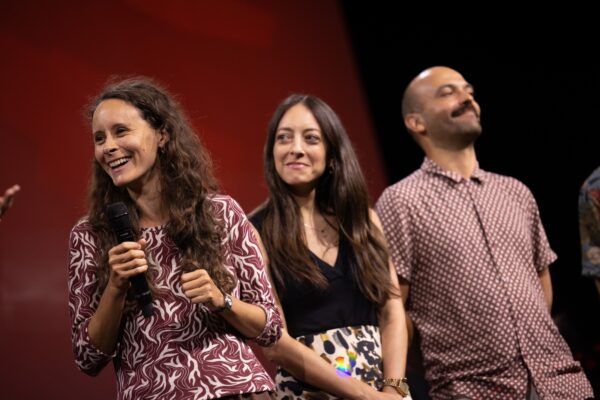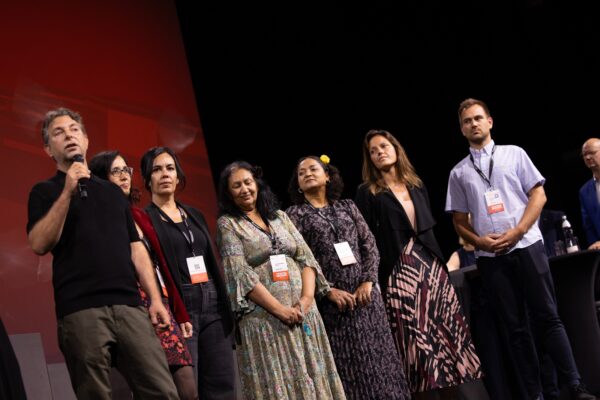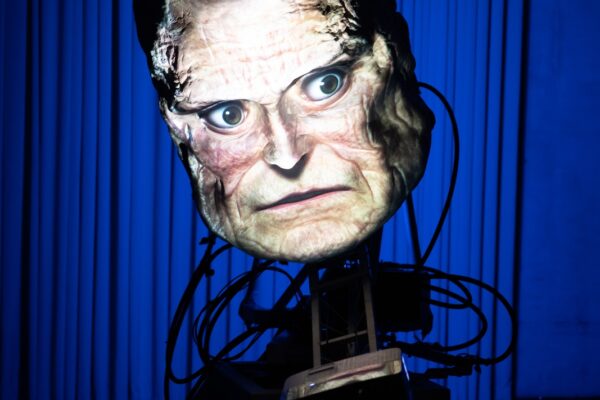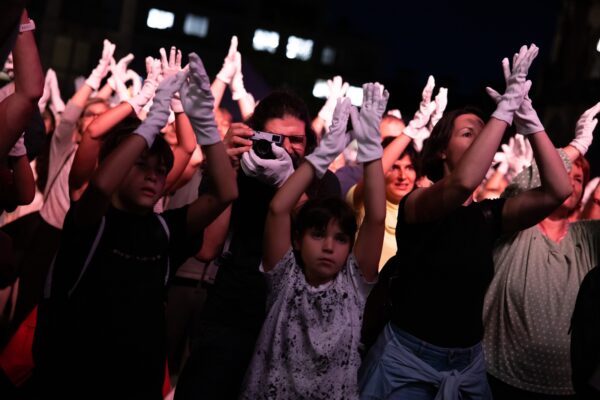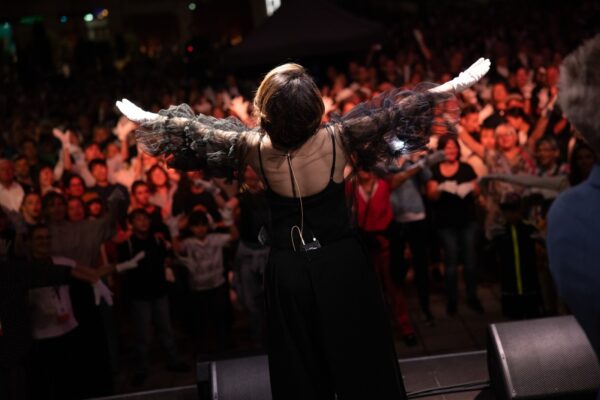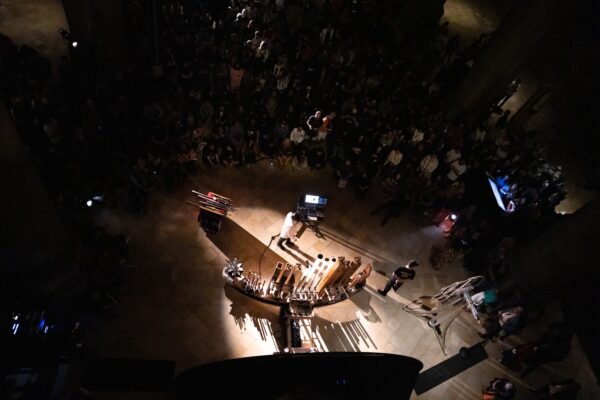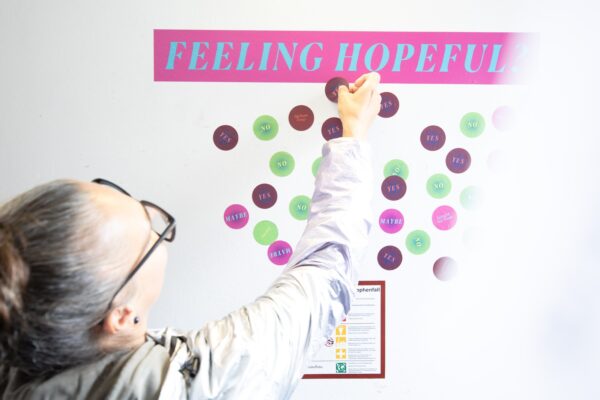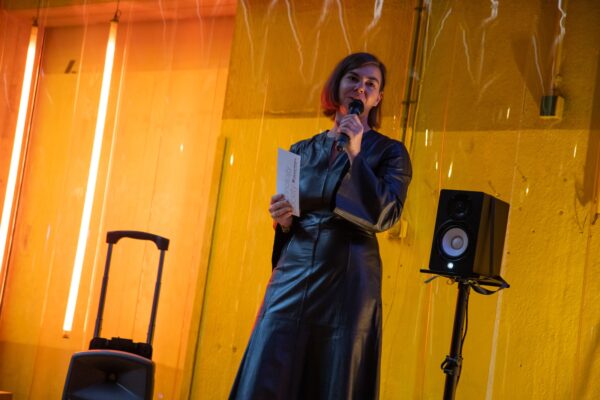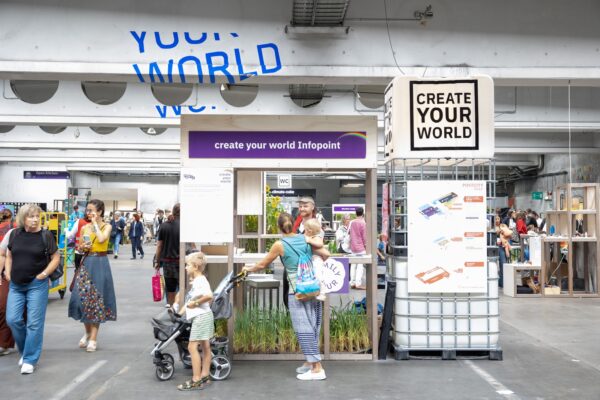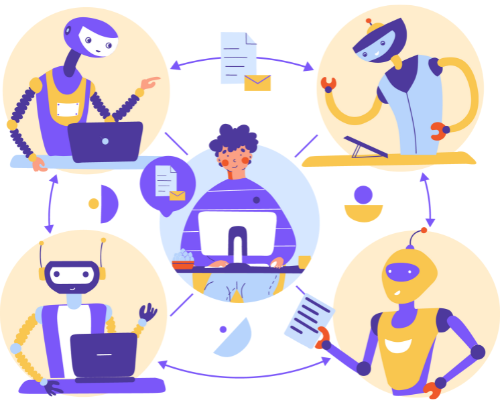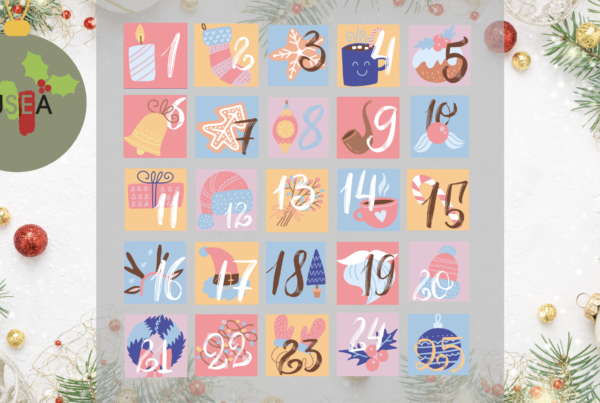Definitely Yes!
But is this a time to panic? Yes/no?
We live in a world in crisis—from the threat of climate disaster to the erosion of democratic institutions—and it can be hard to imagine the future if we fail to act. But the question is not whether to give up; it is whether we can commit more deeply and fight for the causes that matter most. None of us can shoulder every burden, but by sharing responsibility, we can each play a part in tackling global challenges. Worry must not paralyse us. Instead, we should embrace opportunities to make change, however small.
In this sense, we live in a kind of “Schrödinger’s box” of both panic and resolve: acknowledging the stakes while refusing to lose hope. This tension was at the heart of this year’s Ars Electronica Festival. And while the state of the wider world is uncertain, in citizen science the picture is clear: the field is flourishing. Over the past few years, it has been a privilege to support this growth through our work with the IMPETUS citizen science accelerator and, together with Ars Electronica and the European Research Executive Agency, by presenting the European Union Prize for Citizen Science.
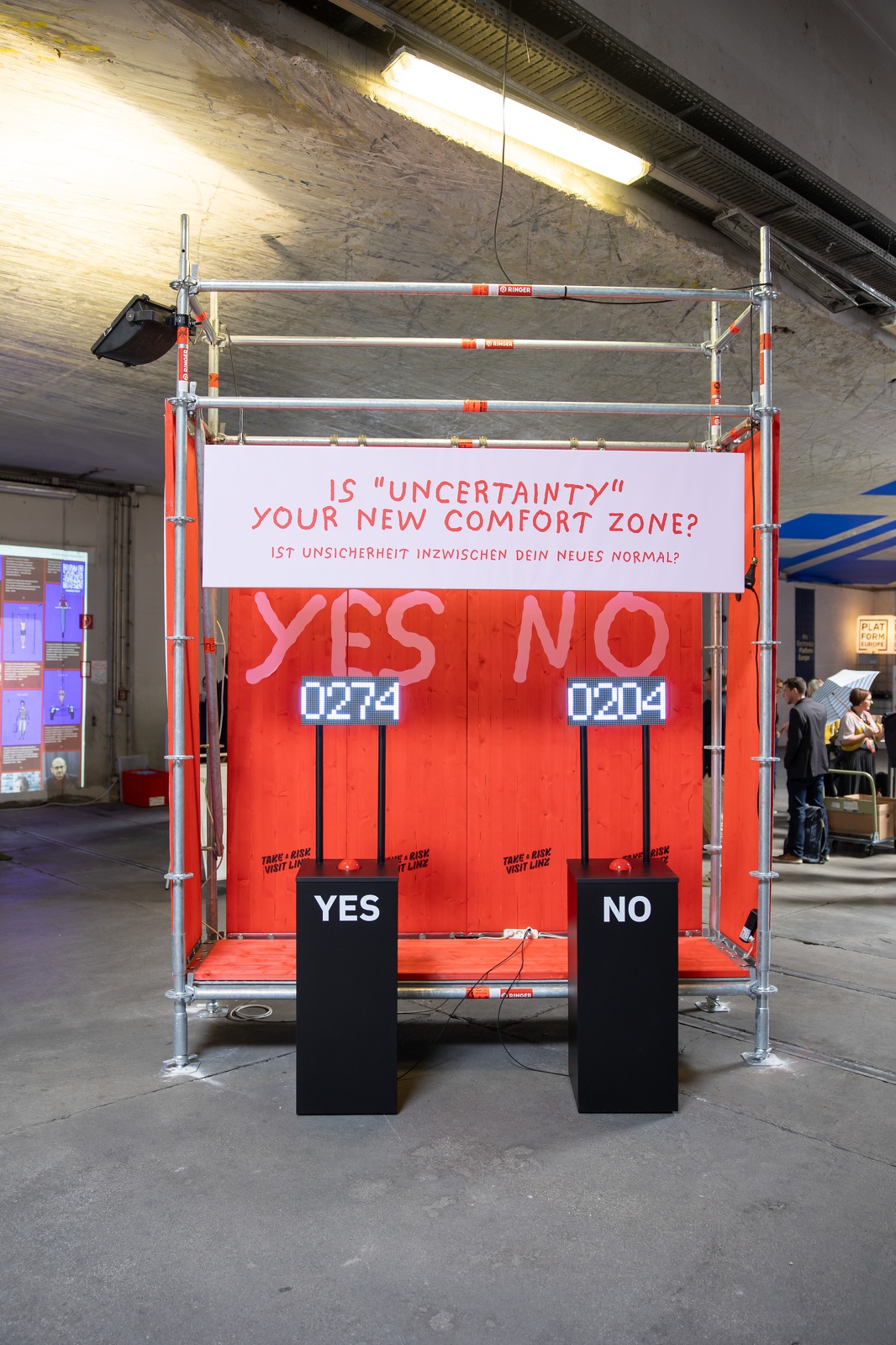
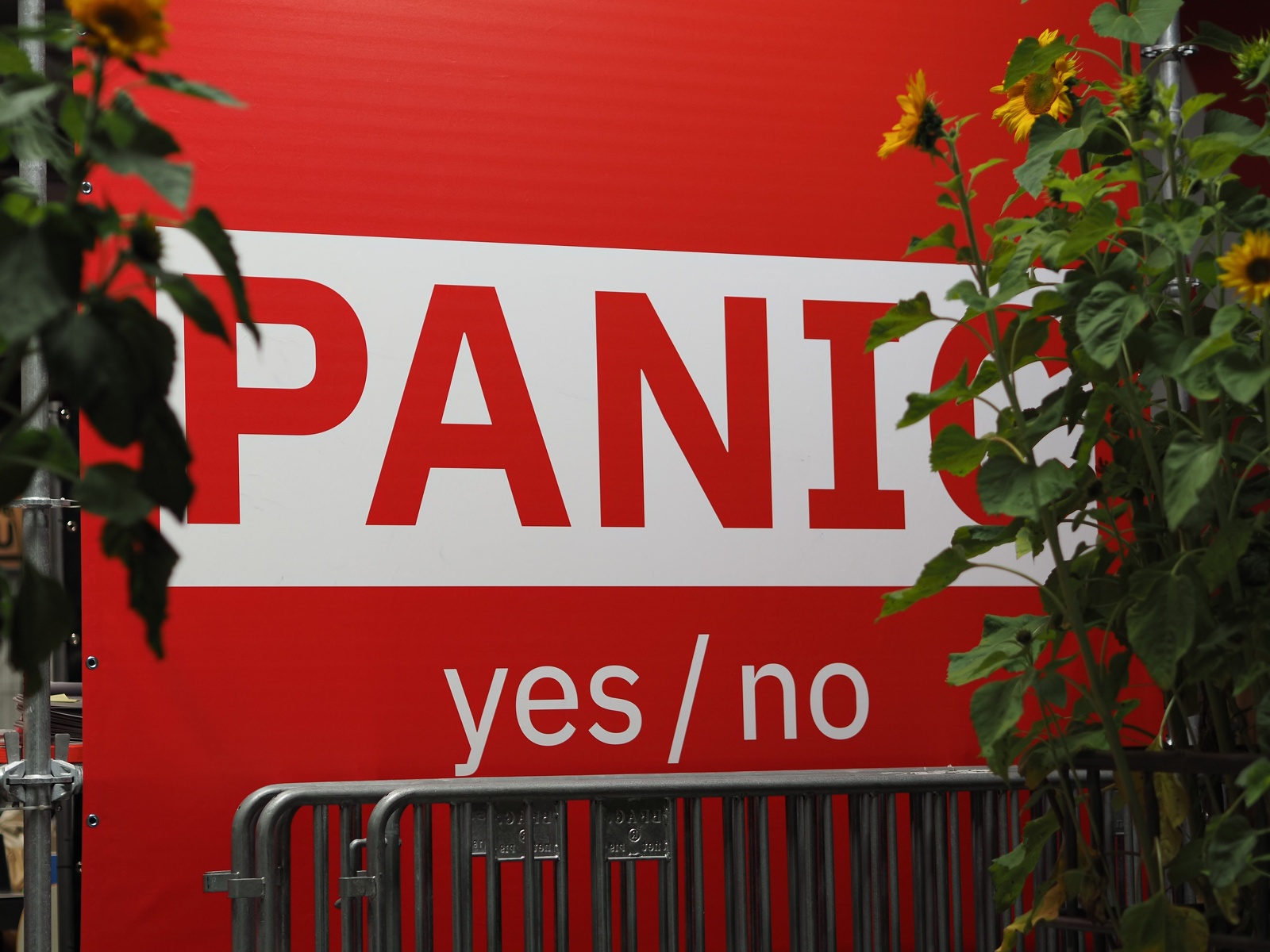
A few days for citizen science
This year marked our final official visit to Ars Electronica—and with it, a renewed determination not only to highlight the winners and honorary mentions of the EU Prize for Citizen Science, but also to showcase and expand our work through a series of events exploring the scope and potential of citizen science in shaping research and society.
The IMPETUS team featured prominently across the festival programme. We began with a citizen science town hall meeting, introduced by Vanessa Hannesschläger, which gave the community a chance to connect, share their work, and spark ideas for future collaboration. This was followed by a panel on the power of citizen science in education and democracy, facilitated by our communications officer Chris Styles. The keynote—Can Citizen Science Teach Democracy?—was delivered by Katja Mayer (University of Vienna and the Center for Social Innovation), and she was joined by Anna Berti Suman (researcher, lawyer, and civic environmental monitoring activist), Elisabeth Schauermann (OeAD Centre for Citizen Science), and Cristina Nava (MOF-Waste project coordinator).
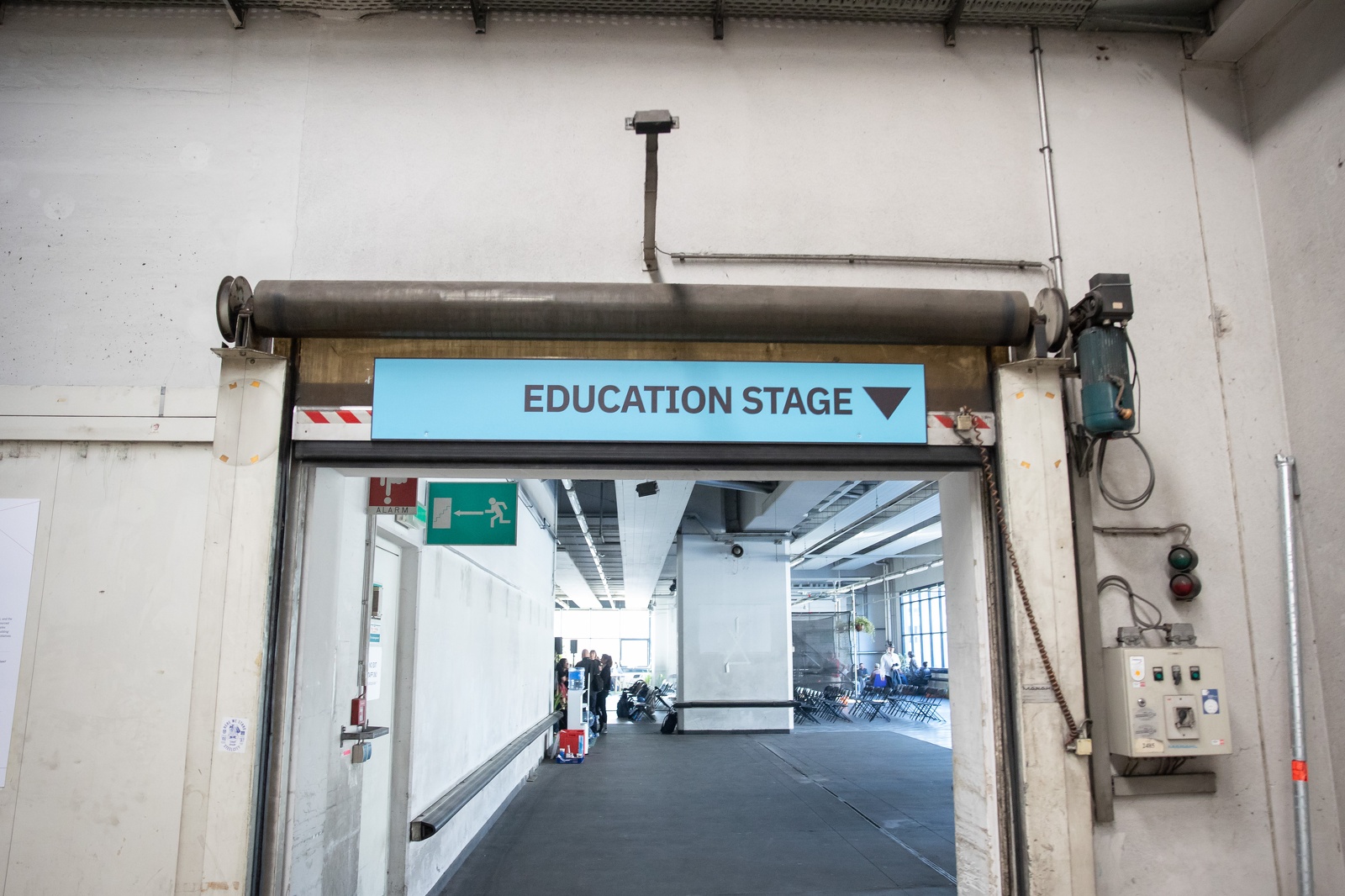
On Saturday, we carried this momentum into sessions that broadened the conversation, examining how citizen science intersects with technology, policymaking, and the arts. Aleksandra Berditchevskaia, Dilek Fraisl, Gefion Thuermer, and Sofie Burgos-Thorsen explored AI as both a tool and a subject of citizen science, addressing opportunities and ethical challenges. Alexandra Albert, Ivana Radović, Katrin Vohland, and Sarah Williams discussed how citizen science can shape policy and strengthen the commons, raising questions of equity, trust, and sustainability.
Finally, Antonella Passani, Willie Ng’ang’a, Jennifer Kanary, and Josep Perelló demonstrated how artistic practice can enrich citizen science, fostering creativity, dialogue, and inclusive engagement. Together, these sessions highlighted the diverse pathways through which citizen science continues to evolve.
Another highlight was the IMPETUS Demo Day, where representatives from the second accelerator cohort presented elevator pitches to an audience role-playing as potential funders and stakeholders. After a lively debate and tough questions, the winning project was announced: Beecode Berlin.
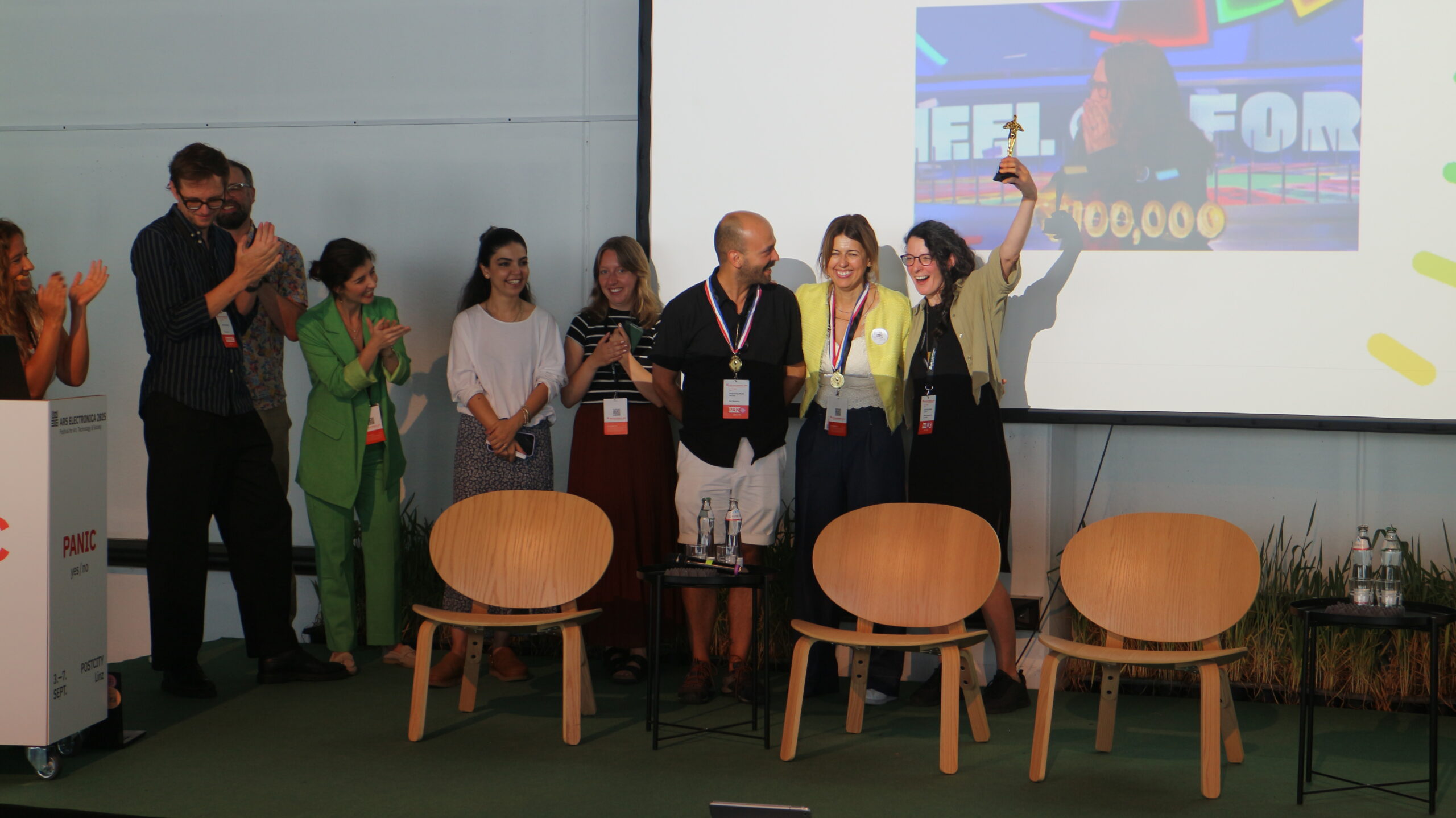
Citizen science in the spotlight
A central moment of our visit was the Ars Electronica Grand Prize awards ceremony, celebrating the winners and honorary mentions not only of the EU Prize for Citizen Science but also of projects pushing the boundaries of art, research, and technology. It was an inspiring demonstration of what is possible when people think creatively and collectively.
For us at IMPETUS, the highlight was watching the citizen science winners take the stage to share their motivations and journeys. The 2025 EU Prize for Citizen Science winners are:
- Grand Prize: HEROINES: Heritage of Emancipation – Empowering Roma Women through Building Networks of Solidarity
- Diversity and Collaboration Award: MoF-Waste – The Museum of Food Waste
- Digital Community Award: Anti-Quake Risk Hunter Community
…alongside 27 honorary mentions.
A city transformed
The Ars Electronica Festival is as much about place as it is about ideas. Its main venue—POSTCity, a former postal sorting station—becomes an Aladdin’s cave of technology, science, and art. From dystopian fast-food advertisements to sake fermentation vats producing orchestral soundscapes, the installations stretch the imagination. Yet the festival spills far beyond POSTCity, transforming the entire city of Linz into a vibrant stage.
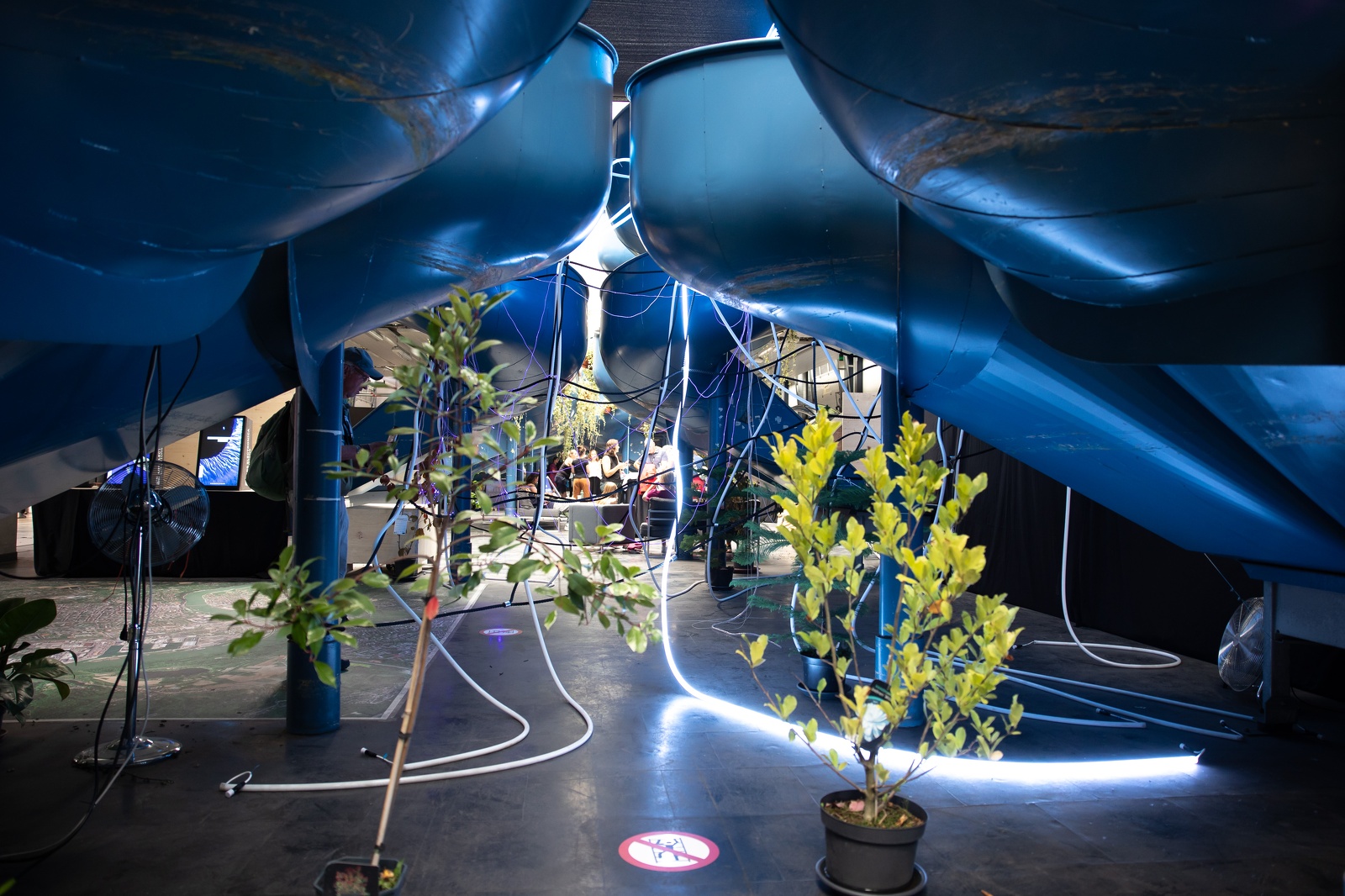
Highlights included the opening ceremony at St Mary’s Cathedral, where a deaf choir taught the audience to “sing” in sign language, and Organism—a deconstructed pipe organ played collaboratively by robots and technicians—filled the space with a haunting, cinematic soundscape. At the Lentos Kunstmuseum, visitors encountered the Golden Nica winners, among them the unforgettable Requiem for an Exit: a four-metre robotic face delivering a monologue on the culture of violence through animatronics, AI, and projection.
Running through the heart of the city, the Danube is both a vital resource and a barometer of regional environmental health. Yet rivers are often overlooked by citizens and policymakers alike. To bring this into focus, Nesta’s Centre for Collective Intelligence and DANUBE4all invited participants on a Datawalk: an interactive exploration combining movement and reflection to reveal the importance of waterways, and to spark conversation about their protection at local, national, and international levels.
Together, these experiences were a powerful reminder of why Linz proudly holds the title of UNESCO City of Media Arts.
Working together
We want to thank Ars Electronica for being an unofficial home to IMPETUS throughout the life of our project and for providing the perfect stage to celebrate and promote outstanding citizen science across Europe.
This may have been our last festival visit, but it is not the end of IMPETUS—far from it. Over the coming months, we will continue to support our final accelerator cohort while also publishing findings and policy recommendations. Our forthcoming IMPETUS Toolkit will offer practical guidance for new and ongoing citizen science projects, helping them maximise their impact and ensure that their work benefits the communities they serve.
